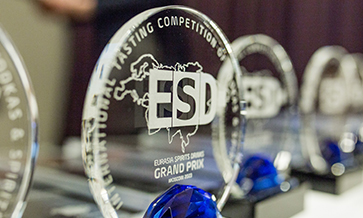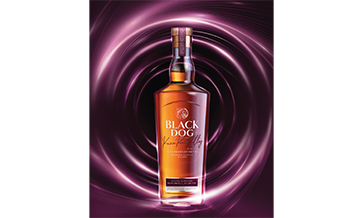At the Taj Palace in New Delhi, AlcoBev India 2025 concluded not just with ceremony but with purpose. With the theme ‘Shaping the Future’, the event aimed to be more than another industry gathering.
Anant S. Iyer, Director General of the Confederation of Indian Alcohol Beverage Companies (CIABC), made it clear that this was a call to reimagine the future of Indian alcobev industry. His welcome address set a collaborative tone, urging all stakeholders across the value chain to push the boundaries of what Indian spirits and wines can represent globally.
That vision was brought into sharper focus during the keynote by Deepak Roy, Chairman of CIABC. Referring to Tequila’s global success, he asked why Mahua and Feni could not follow a similar path. His call to reposition Indian spirits from exotic novelties to everyday premium choices reverberated throughout the day.
The event quickly shifted gears into a lively exploration of markets, consumer insights, culture and policy. A panel moderated by Alok Gupta, Managing Director, ABD, explored the journey of Indian brown and white spirits. The speakers included Rakesh Vasishta of Piccadily Agro, Sudhir Upadhyay of Radico Khaitan and Rahul Mehra of Third Eye Distillery.
A deep dive into market shifts followed, led by Anant and featuring insights from Bikram Basu of ABD Maestro, Ashutosh Rajput of Alcobrew and Pallav Soin of Modi Illva. They tracked evolving drinking demographics, noting that young adults, women and Tier-2 consumers are increasingly defining trends.
On-premise experience
With the rise of gender-neutral branding, experiential preferences and digital influence, India’s alcobev market is fast maturing. Understanding new patterns of consumption, they said, is less about categories and more about reading cultural change.
The focus then turned to the on-premises experience. Moderated by Paramjit Singh Gill, the session included Amulya Pandit of Euromonitor, Vikram Achanta of Tulleeho, Ajay Kakkar of Radico Khaitan and Neeraj Sharma of Sula Vineyards. They discussed how bars, restaurants and lounges are becoming story-telling spaces, not just venues.
Sustainability took centre stage in a forward-looking panel on packaging. It was led by Varun Lohia of ABD and joined by Praveen Malviya of Piccadily, Anand Channapur of Alisha Torrent, Juhi Gupta of TetraPak and Aditya Patwardhan.
The panel explored innovations ranging from recyclable glass to closed-loop systems. Rather than theoretical, the discussion emphasised that consumer demand is already driving change toward eco-conscious solutions.
A standout moment came when Dhavall Gandhi delivered a technical session on maturation. Walking the audience through the intricacies of aging of spirits in India’s climate, he highlighted how higher temperatures accelerate evaporation and challenge traditional timelines.
Trade floor
Abhishek Modi, Managing Director of Modi Illva, emphasizes value-led growth over volume. India, he pointed out, is currently the world’s third-largest alcobev market and is expected to grow from US$ 60 billion to over US$ 100 billion by 2032.
For true global leadership, however, brands must be built on heritage, trust and transparency. He concluded by urging the industry to act as co-creators, not mere competitors.
That spirit of collaboration was echoed in a regulatory panel moderated by Abhishek. The participants included Harish Chand Semwal (IAS), Harshita Attaluri (IPS), Raju Vaziraney of Amrut Distilleries, Alok Gupta and Rajesh Parida of ABD, and Neeraj Sharma of Sula.
Together, they unpacked the challenges of India’s fragmented excise regime, highlighting inconsistencies, lack of transparency, and ongoing reforms in states like Kerala and Uttarakhand as promising models.
Excise policies
Next came a robust discussion on a potential Model Excise Policy, steered by Paramjit Singh Gill. Featuring insights from Chevvuru Harikiran (IAS), Abhijeet Agrawal (IAS), Rajnikant Sabnavis, Bikram Basu and Rajnish Singh, the panel called for a nationally aligned framework that would support both ease of doing business and predictable revenue flows.
The day closed with an international lens as Siddharth Banerji led a final panel featuring Tarun Bajaj (APEDA), Rajeev Samant of Sula Vineyards and Sanjeev Banga of Radico Khaitan. Their message: Indian brands can compete globally, provided they embrace cultural adaptation, regulatory compliance and authenticity.
Beyond the panel sessions, the exhibition space buzzed with innovation. From sustainable packaging to intelligent closures and traceable logistics, stakeholders from every part of the alcobev ecosystem came together to showcase what’s next.
It was a vivid reflection of an industry not just expanding but evolving, with a shared vision of where it wants to go.














